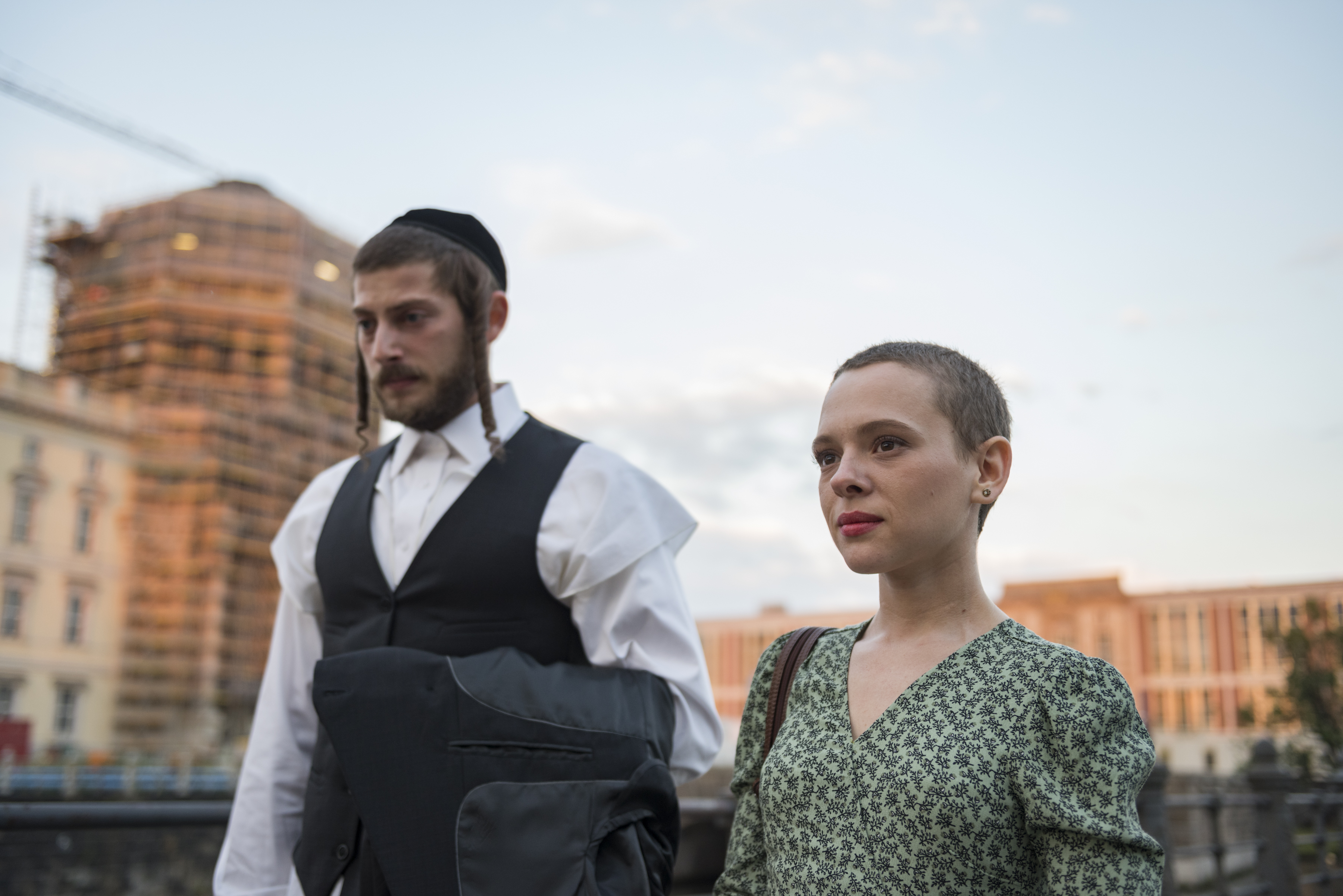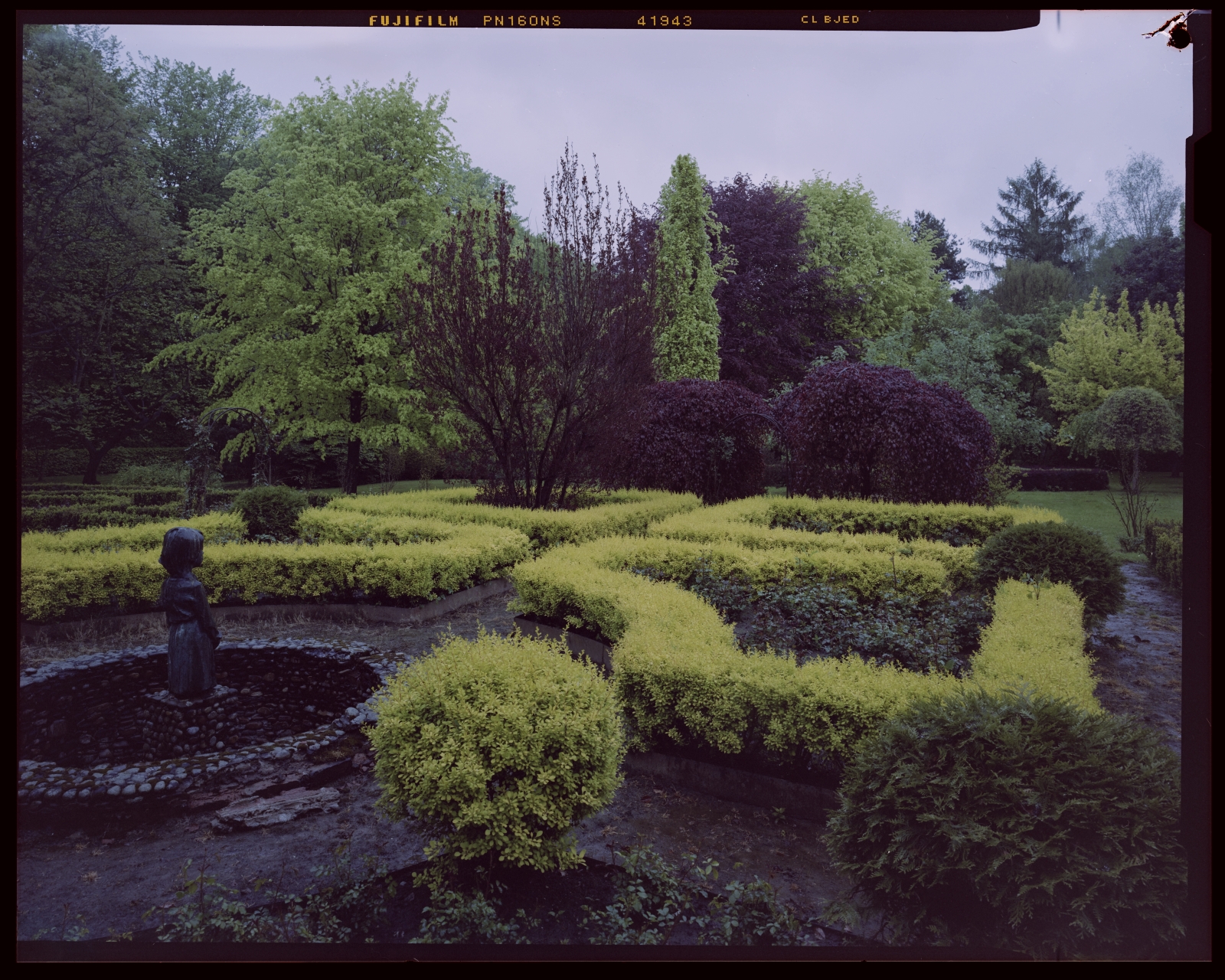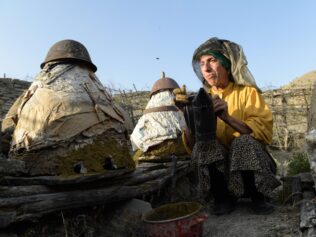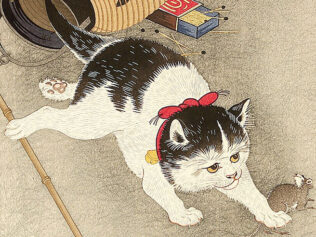
“There’s this burgeoning Yiddish Hasidic arts scene right now. They write their own novels, they make their own movies, they have their own theatre. There is a glot of Yiddish-language Hasidic magazines, newspapers and periodicals – something that didn’t exist when I was growing up.” Yiddish cultural consultant and actor Eli Rosen talks about the changing Hasidic community in New York, his role in the making of the Netflix series Unorthodox, and fulfilling his childhood dream of playing a rabbi. He also discusses his path to performative arts and explains why it makes sense to stage the classics of the European theatre of the absurd in Yiddish – Sławomir Mrożek included.
Mikołaj Gliński: First off, let me ask about the situation regarding the COVID-19 epidemic, which is particularly difficult in New York and specifically for the Hasidic community. How do you feel about it?
Eli Rosen: It’s very difficult. My family and friends are all in Hasidic communities in Brooklyn and upstate – and those areas are particularly hard hit. Especially because these communities are so densely populated, and there’s so much social and physical interaction between everybody. So the conditions were really optimal for the virus to spread. Plus, we’ve just had the Purim holiday – that was right before the quarantines were in effect. Ironically, that happiest time of the year, where everybody is visiting everybody, dancing and partying together, came at the worst possible moment.
What’s the situation with your family and friends?
I’m now getting daily reports of people that I personally know from school – like my bus driver throughout my childhood or my old classmates – dying. It’s very scary, it’s very unsettling and obviously incredibly tragic. It does really cast a pall on what would otherwise be a very exciting time for me personally. It’s very strange. But at the same time, I feel that our show has really touched a chord, and many people say that it’s the first thing that has taken their minds off of the virus. People say they’re grateful for that.
You’re referring to the Netflix series Unorthodox, of which you are one of the creators. What exactly was your role in the production of the show?
I was hired early on before there was a script, more or less as soon as the deal was signed with Netflix. I was hired as, I guess the best possible title is, the Yiddish story consultant. I was essentially a consultant for everything Yiddish – both in the linguistic, cultural and religious sense. Anything that had to do with scenes that take place in Williamsburg, or that include Hasidic people, I was involved in. The script itself, consulting on the scenes, making sure that they’re culturally accurate and that the story makes sense, translating the script into Yiddish, coaching the actors on their lines, overall demeanour and behaviour,










